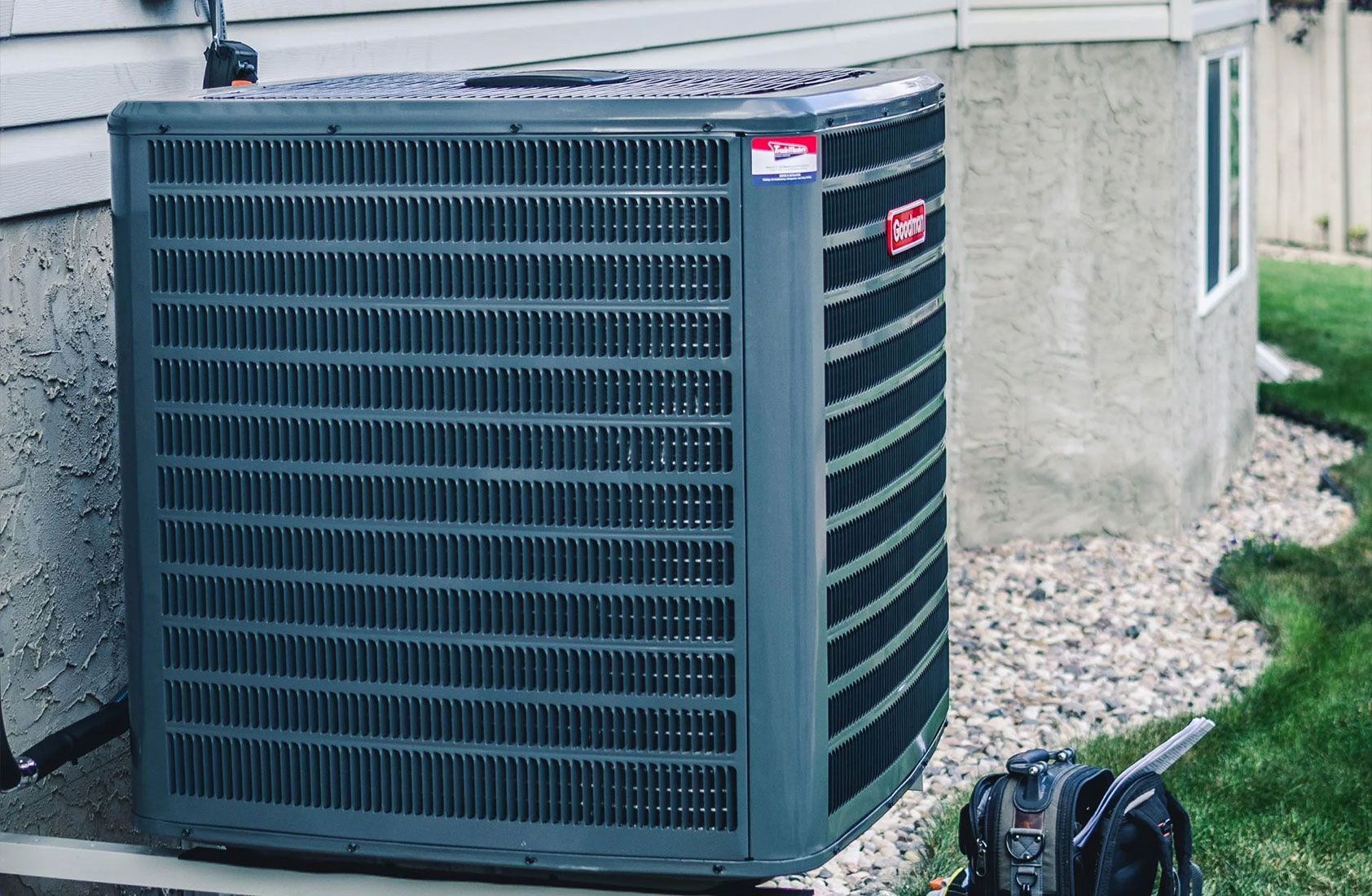Why does it seem that your air conditioning stops working when you need it the most? While that is frustrating, it actually makes sense. In extreme or prolonged higher temperatures, your AC equipment is working harder than usual to keep your home cool. That puts extra strain on any developing weakness within the AC system. If not identified and repaired before an extreme or prolonged heatwave, this is exactly when your AC equipment is most likely to fail.
Of course, that’s why annual servicing is recommended, but even with the best maintenance program, breakdowns still happen, and sometimes the equipment simply needs to be replaced. Let’s work through the possible reasons why your AC has stopped cooling.
Here are the most common reasons why your air conditioner may stop cooling. Some of these you can check yourself and others will require the expertise and specialized equipment of a professional HVAC technician.

1. A DIRTY OR RESTRICTIVE AIR FILTER
It is important to regularly check your furnace filter, as it filters the air passing through the indoor air conditioning coil. When the filter begins to plug up with debris, it restricts the airflow through your system. This causes ice-ups and liquid slugging, which will cause the compressor to fail or be damaged. It is especially important to replace your filters in the summer. With the additional dust and contaminants in the air, we recommend doubling the frequency of which you change your filter (once every month for 1” wide filters, and every 1.5 – 2 months for 4 and 5” wide filters).
Even if your filter looks clean, the pores that catch the contaminants in the air do plug up. Pay attention to the MERV rating of your filters in AC season. Any air filters with a rating higher than 11 will overly restrict air flow. In summer, choose a MERV 8 TO MERV 10 filter rated for high airflow. Alternatively, a certified HVAC technician can advise on which filter is best for your system. If you have a permanent type filter, make sure it has been cleaned and is not clogged. If allergies are an issue and air filtration is a priority, refer to the helpful information on our Indoor Air Quality page.
 2. A dirty condenser
2. A dirty condenser
The condenser is inside the unit that sits outside of your home. Over time, dirt, debris and grime build up. If left unchecked, this situation can damage the equipment, causing a failure. As well, a dirty condenser will increasingly cost you more on energy bills. It’s a good idea to use a cover during winter, but another helpful tip is to make sure you have approximately 18 inches of clearance on all sides. This will prevent unsafe operating conditions and is required for optimal performance.
TradeMasters has solutions for thorough condenser cleaning.
3. A REFRIGERANT LEAK
Note – Handling of refrigerants is strictly regulated and must be done by a professional HVAC technician with the proper equipment.
Signs of a refrigerant leak include:
Loud and unusual sounds, such as hissing and buzzing
An icy buildup on the air conditioner, or if moisture and/or pools of water are accumulating near the furnace or air conditioning unit
It has been taking longer and longer to cool the home prior to the failure
If you suspect a refrigerant leak, turn off the air conditioner and contact TradeMasters. Ignoring the leak can cause further damage to your equipment.
 4. A BROKEN COMPRESSOR OR MOTOR
4. A BROKEN COMPRESSOR OR MOTOR
If your air conditioner is making an unfamiliar noise, this could be the problem. A failed compressor may make growling or screech-like noises, while a failed motor may rattle or buzz. Turn off your system. This is a diagnosis that should be made by a TradeMasters heating and cooling expert. They will be able to identify any part failures.
 5. THE WRONG SIZE OF AIR CONDITIONER FOR THE SIZE OF YOUR HOME
5. THE WRONG SIZE OF AIR CONDITIONER FOR THE SIZE OF YOUR HOME
An undersized air conditioner has to work too hard to cool too large of a space. It will be prone to breakdown and will underperform. An oversized air conditioner cools too quickly and frequently turns on and off, which is what we call short cycling. This can lead to inconsistent cooling and can cause damage to your equipment.
We will assess the size of the unit when diagnosing improperly functioning equipment. Oversized AC equipment is a problem we commonly see as it is not a code requirement for the contractor to do a comprehensive heat loss calculation in many municipalities. A professional heat loss calculation takes into consideration several more variables than just the size of your home.
 6. LOSS OF POWER
6. LOSS OF POWER
If your AC unit won’t run at all, check that the power switch in the disconnect box is switched to the ON position. This box is near the outside unit, mounted on the house. Someone may have turned it off without your knowledge.
Does your thermostat operate off of batteries? Replace the batteries.
As well, check the electrical breaker. However, if the circuit breaker continues to trip, do not keep resetting the circuit breaker to turn the system back on. Contact TradeMasters to diagnose what the underlying issue is.
Finding qualified and experienced air conditioning experts isn’t always easy. If your air conditioning unit has stopped working, look no further. When it comes to air conditioning repairs, maintenance and installation, TradeMasters HVAC shines. Give us a call or schedule online and we will get you back in the cool!


 2. A dirty condenser
2. A dirty condenser
 4. A BROKEN COMPRESSOR OR MOTOR
4. A BROKEN COMPRESSOR OR MOTOR 5. THE WRONG SIZE OF AIR CONDITIONER FOR THE SIZE OF YOUR HOME
5. THE WRONG SIZE OF AIR CONDITIONER FOR THE SIZE OF YOUR HOME 6. LOSS OF POWER
6. LOSS OF POWER